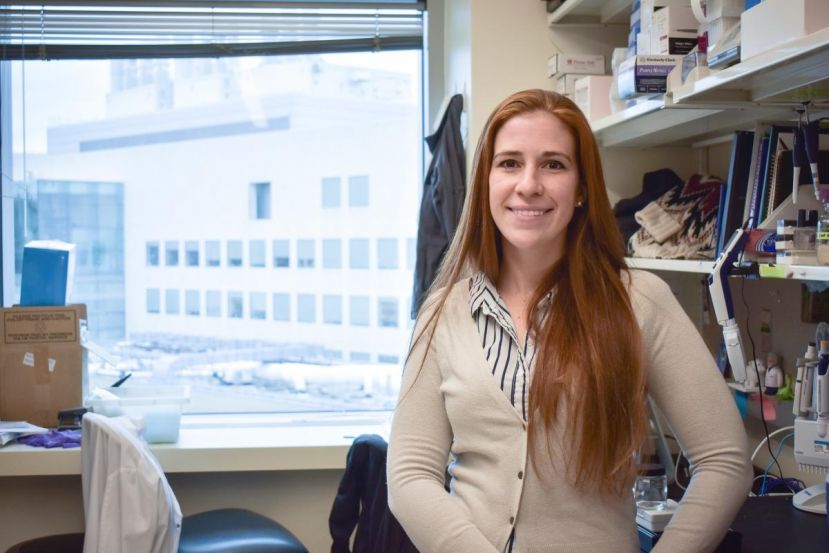Dr.Sadtler:”We are researching to quantify undetected cases of coronavirus infection"
A new clinical trial initiated by the U.S. National Institute of Health (NIH) explores how much the coronavirus spreads nationwide than has been detected. Dr. Kaitlyn Sadtler, who heads the unit that conducted the experiment, answered the questions of Turk of America.
- Can you explain the details of your antibody clinical trial?What is the scope of the study?
Our study seeks to understand the proportion of undiagnosed cases within the United States in healthy adults. We will be testing 10,000 volunteers from across the country for the prevalence of SARS-CoV2 antibodies in their blood.
-What is the main importance having the antibody tests?
These antibody tests allow us to understand where the virus has been, and where it has spread, and the true extent of the infection in the United States.
-I believe these are available at home blood collection kits. Is it different from antibody tests which is available at pharmacies or small medical clinics such as CityMD?
Our at home blood collection kits are exactly that – collection kits. They are not at home tests. When a donor sends their sample back to the lab, we extract the antibodies, then analyze them in the laboratory using an ELISA. This is different test than the rapid “lateral flow” tests that look like pregnancy tests. ELISAs are more sensitive, and we have the ability to run multiple different controls (samples that we know the theoretical outcome of, such as blood serum before 2019 when SARS-CoV2 didn’t exist, and blood from known COVID19 patients). This allows us to have strong validation on our tests, determine what level of signal intensity in our assays is determined “positive” versus “negative”, and ensures that what we measure is correct.
-If a person has antibodies that has prior covid-19 infection,does it mean that they are immune to Covid-19? Who is eligible to take the test?
We do not know for certain whether or not the presence of antibodies equals immunity. In partnership with serosurveys, we need to evaluate whether or not these antibodies can neutralize the virus (prevent it from spreading from cell to cell in a petri dish), what level of antibodies would then be protective, and ultimately, if someone has these antibodies in their blood, do they get the disease if exposed again. The work we are doing is a research study, not a medical diagnostic, and we are testing individuals who have not yet tested positive for SARS-CoV2 by nasal swab, and are not currently ill.
-`Where do you see the coronavirus pandemic going? Your prediction?
When we look at the death toll, it surpassed 60k.IHME prediction for death toll was 68k two week ago and now they revised to 78k.Do you think U.S. would reach to 100k death toll by August?
I am not an epidemiologist, so I can’t comment too much on this. Stay distanced, wear a mask, wash your hands, and stay safe!
-What are your thoughts regarding the vaccine? How soon would vaccine be ready?
I cannot comment directly on the vaccines, but scientists are working very hard on developing a vaccine, first testing to make sure it is safe, then testing to make sure it works, and then testing to make sure it really really works (more numbers of people tested).
Latest from Ali Cinar
- Merve Hickok, President of the Center for AI and Digital Policy, speaks on the latest developments in AI.
- Bloomberg HT U.S. Representative Ali Cinar interviews Julie Ediah, U.S. Consul General of Istanbul
- Integrated Polymer Industries Recognized by Northrop Grumman for Supplier Excellence
- Cuts to Social Work and Education Budgets in New York
- President Biden meets with Texas governor, officials in 1st visit to US-Mexico border

